How the Football Manager video game became a real-life ... football manager
PC Gaming Week: Your club's next big signing is already in the game
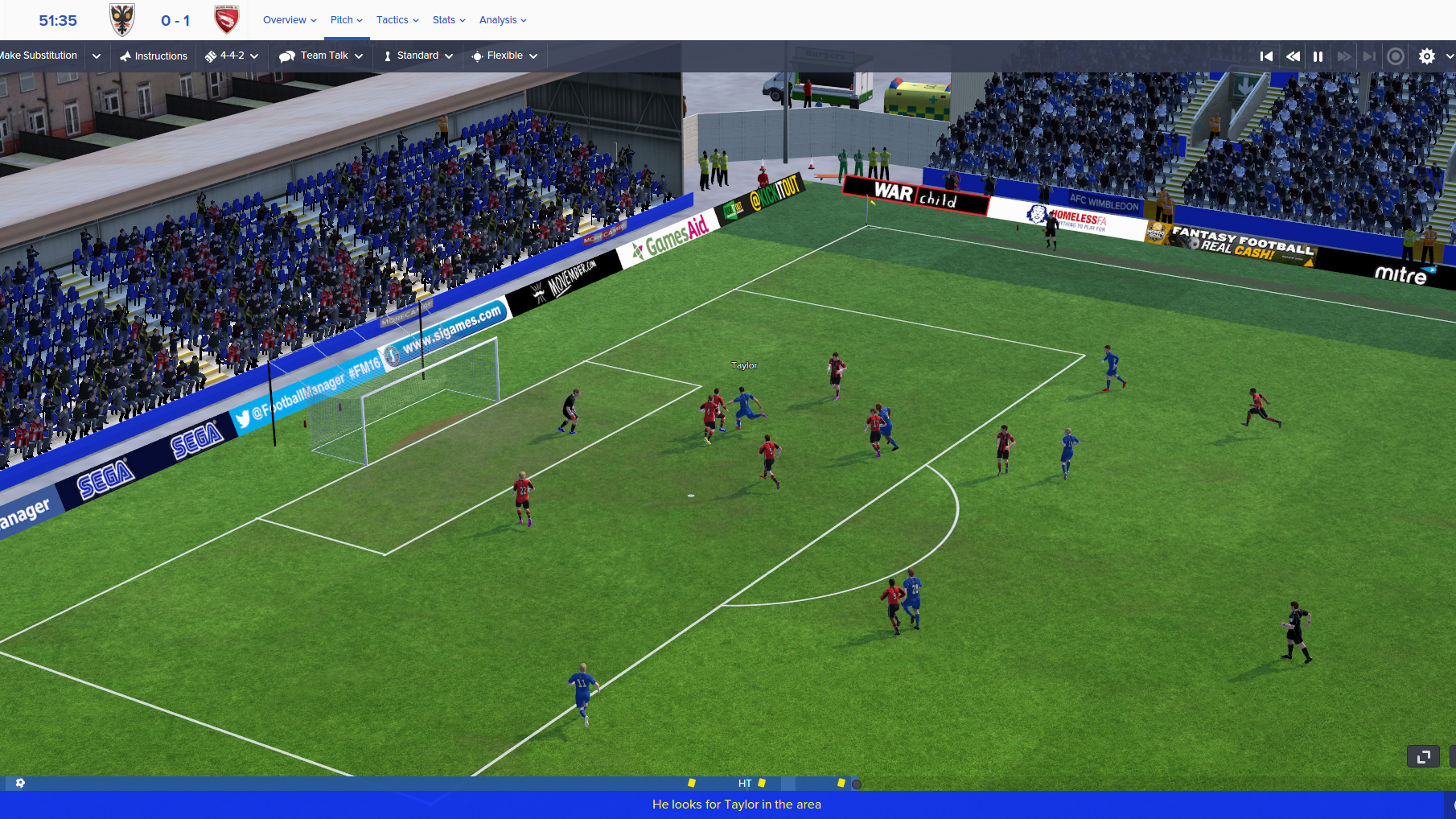
Sign up for breaking news, reviews, opinion, top tech deals, and more.
You are now subscribed
Your newsletter sign-up was successful
While another English football season draws to a close, the bi-annual carnage of the transfer window – when clubs are allowed to buy and sell players – will soon resume.
As the who-goes-where drama plays out over the summer, there'll be social media hysteria with fans arguing about players they've never seen, hastily-made YouTube montages pitching unknowns as reincarnations of Johan Cruyff and, unfortunately, an abundance of Sky Sports presenter Jim White on UK television screens.
However, above the cacophony of noise, one simple utterance could settle debates: "He's great on Football Manager, him."
In August 2014, the official word came on what fans, gamers and player recruitment teams had always known: the database of players from the Football Manager (FM) video game was so deep, so accurate and so reliable, it could be used in the real world.
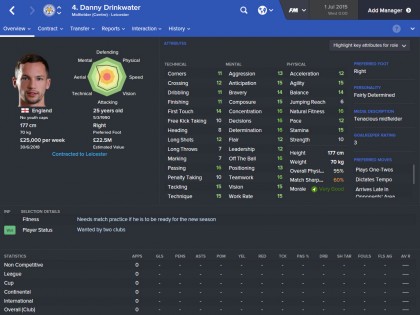
When the game is better than the real thing
Sports Interactive (SI), the makers of the dangerously addictive team management simulator, licensed its database to ProZone Recruiter, the professional analytics platform used by clubs to identify potential signings.
It is, without doubt, the greatest resource in terms of granularity and of coverage across the world –
The Information Lab's Brian Prestige
Sign up for breaking news, reviews, opinion, top tech deals, and more.
In the ensuing two seasons, the 250 individual attributes for 651,184 players (up from 4,000 when the game first launched in 1992) – collected by a network of 1,300 scouts in 51 countries – have become an important tool in helping many professional clubs identify desired players.
"It's very important to us that, outside of their clubs, the first time people should be finding out about future stars is from Football Manager." SI boss and FM director Miles Jacobson tells techradar.
"We don't always get it right … our strike rate is currently about 99.5%," Jacobson says. "We're proud of this, but we'd prefer if it was 100%."
While the ProZone integration has only existed for two campaigns, clubs had unofficially been using FM's database for over a decade. What the partnership has achieved is to integrate this precious data into a much larger suite of information and add much greater context.
Because of how extensive FM's global reach is, new markets are also being leveraged.
Brian Prestige is a former data analyst with Bolton Wanderers Football Club and regularly consults with clubs for The Information Lab. He was one of the first to mine the Football Manager database for real world recruitment.
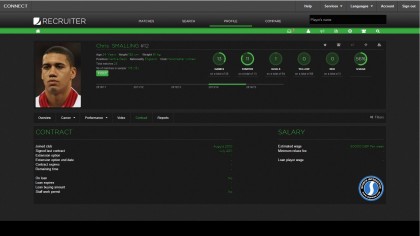
"It is, without doubt, the greatest resource in terms of granularity and of coverage across the world," Prestige says.
"At the time, we thought, 'this database has got every single player playing across over 50 countries," Prestige recalls. "That's more than we've got anywhere in our scouting systems – more than we can find anywhere online.'
"If you were a League Two club with volunteer, part-time scouts, here's this worldwide scouting network, all for the cost of buying the game!"
Prestige tells us, in those early days, Wanderers had no scouts looking for young talent in Lancashire, despite being a North West club. It was FM data that helped them realize just how many players were being bred in the region.
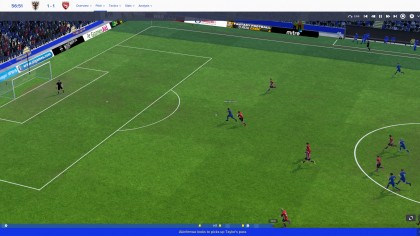
"We used FM to look at where players were born and married that with the first club they were associated with, and it helped us see where we should be sending our scouts," Prestige says.
While Bolton was one of the first clubs to spot the potential uses for the data, others followed in greater numbers. While teams aren't relying exclusively on the FM data to identify players, it has certainly augmented the approach by supplementing ProZone's performance-based technical data.
Data- or game-driven decision making
"It's a great way to minimize the inherent risk in player recruitment," Prestige says.
"It gives you that extra level of context. You understand more about that player, his playing history, his biography and the subjective opinions from Football Manager. You can marry that up with technical performance data from ProZone and reports from your own scouts who have the greater understanding of the club's requirements."
Ultimately it's less about which clubs can afford products, but who has the people and the processes in place to make the best use of the information –
Jacobson
So, with millions of pounds in salaries and transfer fees now being splurged based in part on the SI's scouting reports, is the Football Manager team feeling the pressure?
"Not really," says Jacobson. "I've always wanted the data in the game to be as accurate as possible. That's what makes the alternative universe that people go into when playing the game believable."
What has exactly has changed in the past two years? From SI's perspective, surprising data points are proving useful to professional recruiters, while ProZone's own data is also improving the Football Manager game.
"We've learned it's not just the playing data that people are interested in, but also things like height and weight and historical injury data, which is very important when looking at signing players," Jacobson adds.
Aside from the clubs, players also have a huge stake in the data, beyond personal vanity. Now, scouting reports can affect real world contract negotiations and potential transfers to bigger clubs.
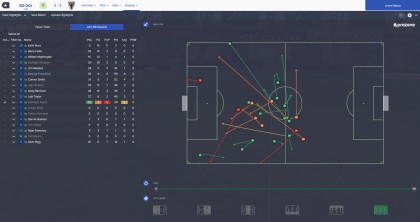
"Often it's agents trying to get their players stats up when looking for a new contract," Jacobson says regarding whether players pester SI over ratings.
The proof is on the pitch
"We did once have a couple of players arguing about their pace and acceleration stats, so I suggested they race against each other," Jacobson says. "They filmed it and sent it to us … and our researchers were right in the first place."
"I tell [complaining players] if they play better, then they'll get raised, but we would only change stats in very rare circumstances."
The presence of FM data within ProZone Recruiter has helped to democratize player identification by ensuring the richest don't always have access to the best tools. Prestige would like to see this go further.
He would advocate a US-style model, making all information available to all clubs through league-wide agreements with companies like ProZone.
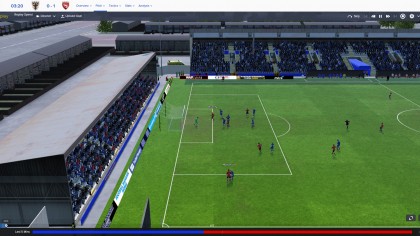
"Ultimately it's less about which clubs can afford products, but who has the people and the processes in place to make the best use of the information," he says.
"You've seen evidence of that with clubs like Leicester City. Looking back to their time in the Championship (the second tier of English football), the processes they had behind the scenes were all a starting block of what they're doing now."
"They are thoughtful people with great processes," Prestige says. "It was never about how much money they had."
When the stakes couldn't be higher...
Tools like ProZone Recruiter are becoming more important than ever. Thanks to the new TV deals, which will lead to an influx of £8.3 billion (around $12 billion) over the next three seasons, even Premier League clubs outside of the elite few have considerable sums of money to spend, making unearthing hidden gems all the more important.
Meanwhile, Financial Fair Play rules limit spending, meaning transfer missteps can have costly repercussions even for the super rich.
"At certain clubs, the data is already the winner when evaluating players. 95% of clubs, it's the opposite way, but it needs to be a blend of both," Prestige says.
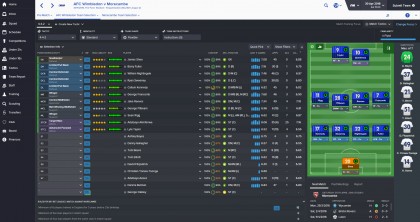
"Decision makers need to understand the value of data and the processes behind it, but also an appreciation for their scouts and their respective strengths in judging age groups and markets."
With both approaches there are hits and misses. Prestige tells of the time a top player, one currently making national headlines, slipped through Bolton's grasp, despite being overwhelmingly backed by the data.
"From the scouts' side, it was a mixed bag in terms of his end product, so he wasn't signed," he admits. "But there'll be some you'll miss."
While player recruitment will never be an exact science, for the team at Football Manager HQ, the job of identifying the next generation of stars is already well underway.
Jacobson adds: "I'd be looking at Tielemans, Bazooer, Ocampos, Kranevitter, Mammana, Malcom, Lincoln, Hojbjerg, Rugani, Perin, Lozano, Ruben Neves, Unai Lopez, Sergi Samper – but some of those may be very hard to get, as they've already been picked up by big clubs."
Regardless of whether your club nabs one of those big fish this summer, if they sign a player who's excelling in Football Manager, there should be plenty for you to look forward to come August.
- These are the best PC games you can play right now
A technology journalist, writer and videographer of many magazines and websites including T3, Gadget Magazine and TechRadar.com. He specializes in applications for smartphones, tablets and handheld devices, with bylines also at The Guardian, WIRED, Trusted Reviews and Wareable. Chris is also the podcast host for The Liverpool Way. As well as tech and football, Chris is a pop-punk fan and enjoys the art of wrasslin'.
